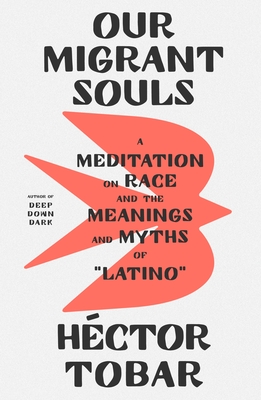- 14 3402-5578
- Rua Hygino Muzy Filho, 737, MARÍLIA - SP
- contato@latinoobservatory.org
 Fonte: https://mitpressbookstore.mit.edu/book/9780374609900
Fonte: https://mitpressbookstore.mit.edu/book/9780374609900
Author Héctor Tobar spoke with journalist Deepa Fernandes in a piece for WBUR, a non-profit news organization, about his new book, titled “Our Migrant Souls: A Meditation on Race and the Meanings and Myths of ‘Latino’.”
The book explores the meaning of being called Latin, telling stories Tobar heard as well as his own experiences.
The author begins by discussing how common narratives of empire and injustice are in childhood in the United States. Children consume stories of powerful elites living in stone towers and walled cities, facing small and weak heroes fighting against power. These stories resonate because they reflect people's collective memories in a world marked by migration and violence.
Tobar points out that the empire of fantasy and cinema is also present in Los Angeles, the largest “Latino” city in the United States. LA’s film and television industry makes billions of dollars by telling fantasy stories about empires. The author mentions the film adaptation of “Dune” as a recent example, where a character talks about the horrors inflicted by an empire, resonating with experiences of different peoples over time.
In the real-life context of Latino families, the power of the empire is evident. Geographical and natural barriers, such as the Florida Strait and the Sonoran Desert, separated family histories and created divisions. The U.S. Coast Guard and fences along the border between Mexico and California and Arizona are physical examples of the empire's willingness to impose its authority.
The author also discusses how the idea of Latino or Hispanic people as a separate race arose from the history of the United States and its expansion across the continent. The U.S. has categorized “Latinos” as “people of color”, and their stories have an epic reach, spanning oceans, deserts, and diverse urban neighborhoods. Armies, police forces, and incarceration systems maintain an uneven order in which the work of Latinos contributes to the riches of the empire. In addition, many live in constant fear of detention and deportation.
The author emphasizes how the experience of being uprooted from one way of life and transported to another marks the collective psyche of Latinos in the United States. The feeling of being separated from their essence never leaves them. The legacy of your ancestors’ travel, exploration, and resilience becomes as subtle and indelible as skin pigmentation, nose shape, and eye color.
The text addresses the experience of Latinos in
the United States, exploring themes such as identity, migration, empire, and
displacement. Héctor Tobar's book seeks to bring these issues to light and
offer a unique perspective on what it means to be called Latin.











